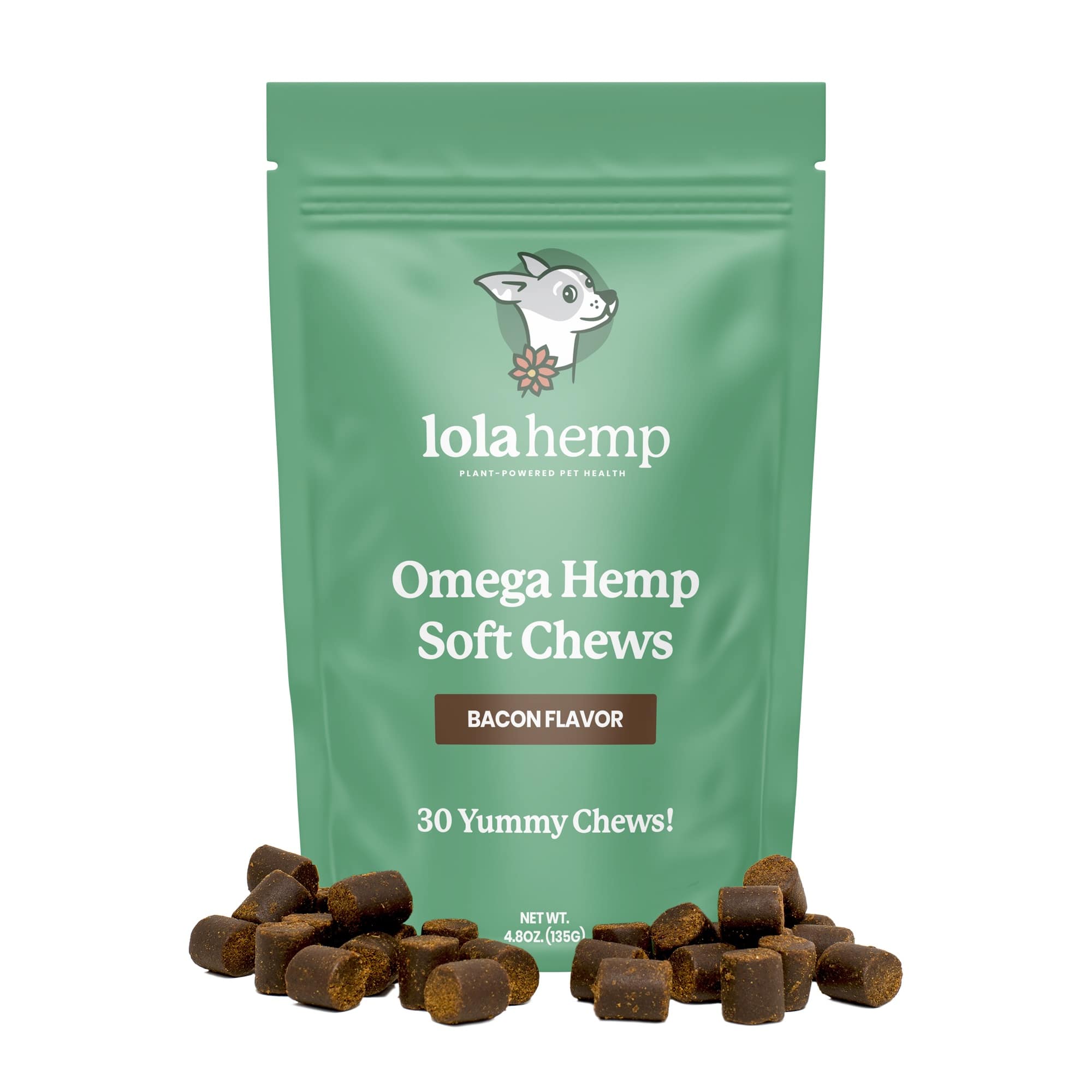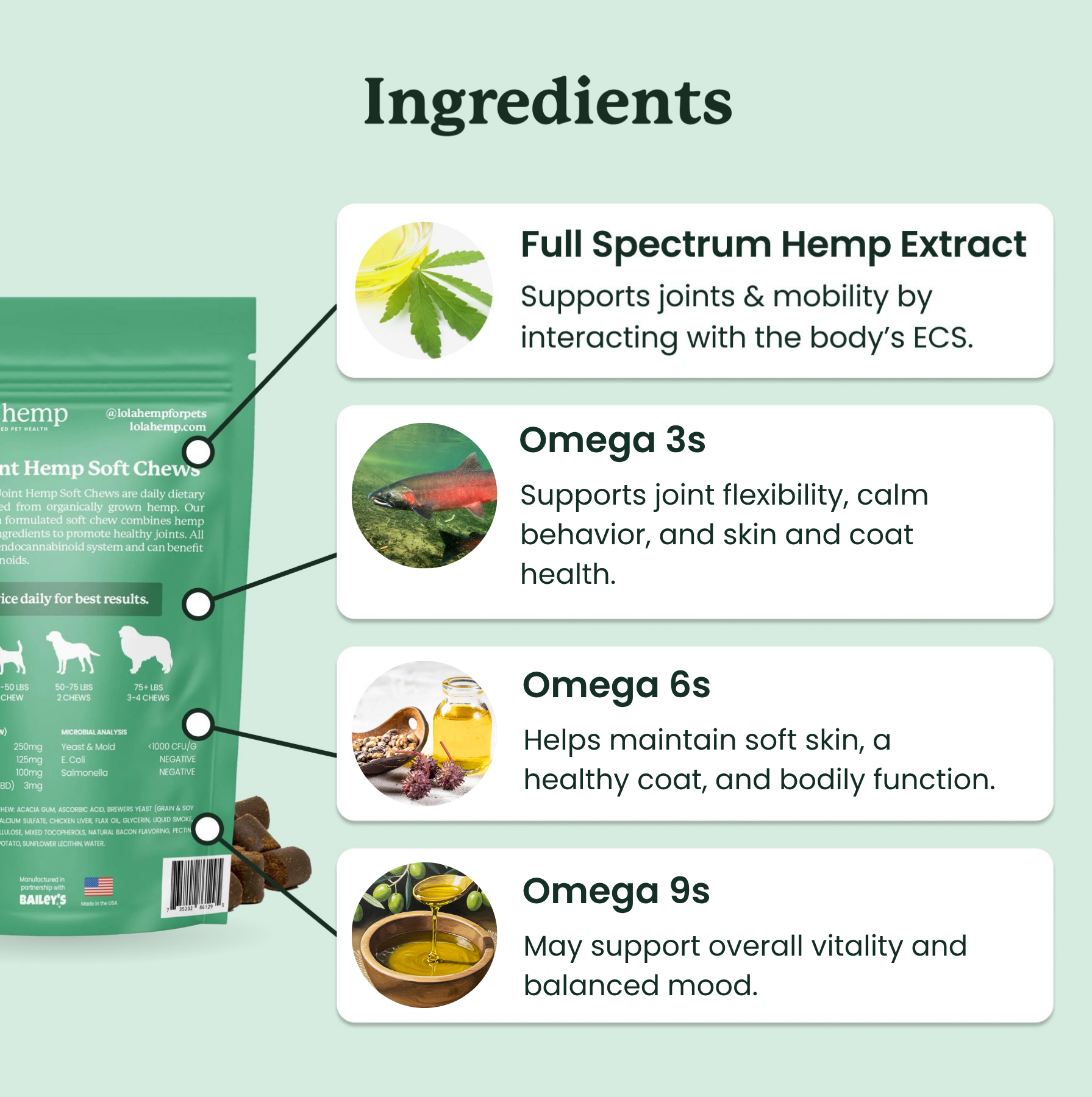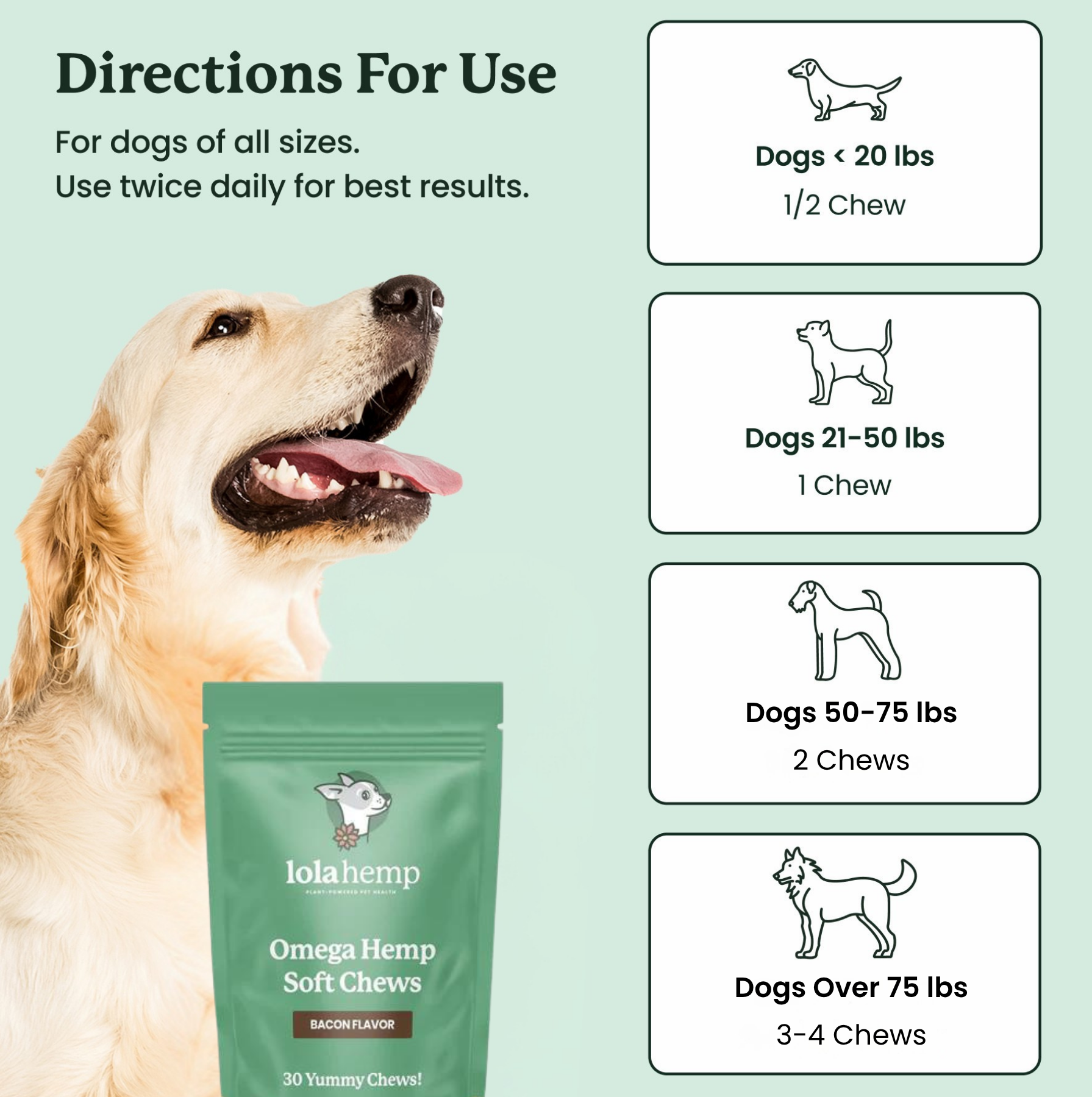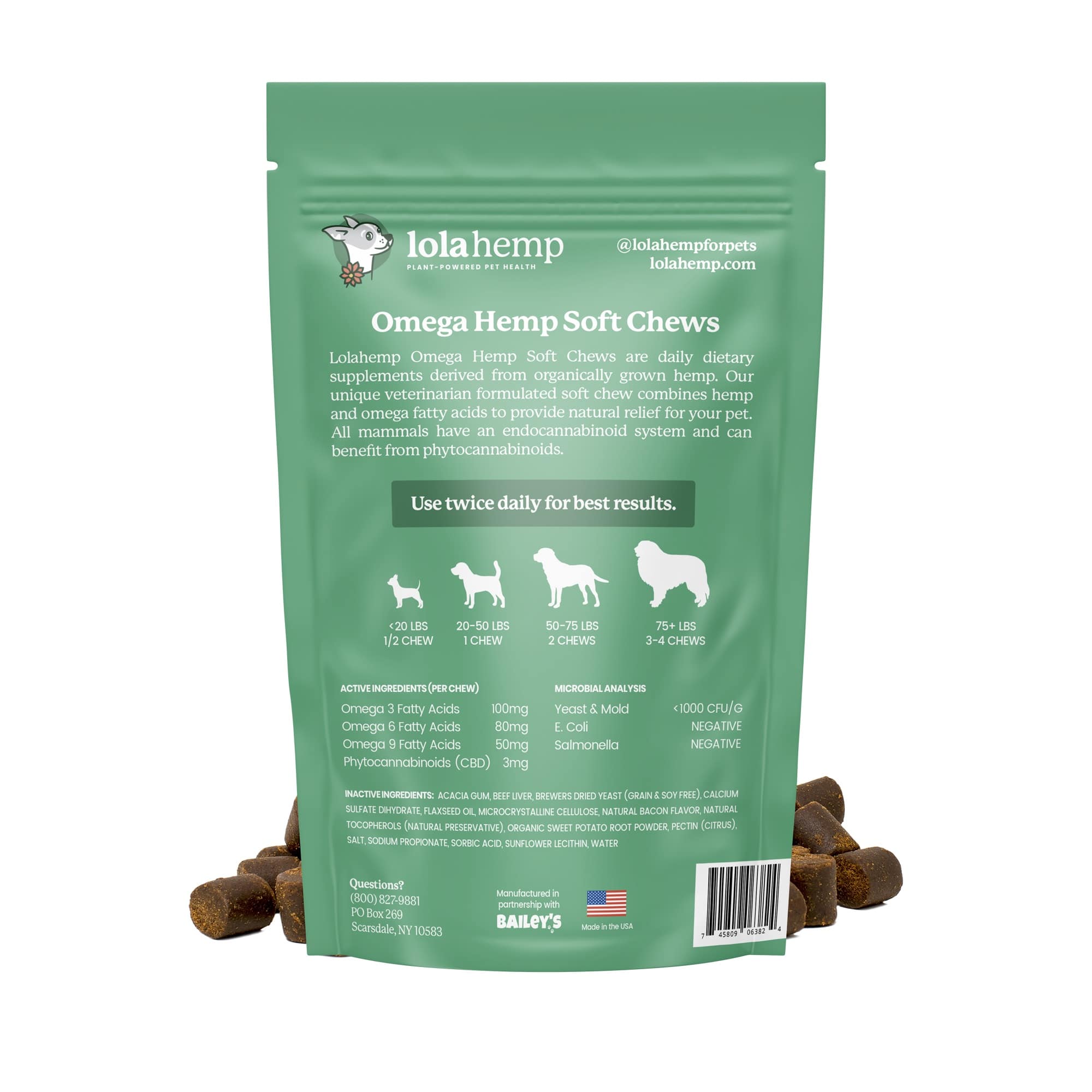There is a wave of pet owners getting informed about holistic oils such as CBD oil and salmon oil for dogs that may improve their pets' health. Everything from your dog's mobility to your cat's emotional distress can be supported by one organic oil or another.
Salmon oil is one such supplement that has been shown to support inflammatory health. More specifically, there's a lot of buzz about Alaskan salmon oil and whether or not it can help pets.
This guide will splash into Alaskan salmon oil (pun intended) and help you determine whether or not it's right for your dog.
Let's take a look.
Quick Answers:
- Wild Alaskan salmon oil can be a better choice than traditional salmon oil supplements because of its purity, sustainability, and high levels of omega fatty acids.
- Your dog can benefit greatly from getting enough omega-3s and omega-6 fatty acids into their diet. View our salmon oil supplement dosage calculator above to understand how much your pet may need.
- Never give your pet salmon oil supplements intended for humans.
- If your dog is struggling with a health issue, but wild Alaskan salmon oil isn't the right fit for your canine companion, there are alternatives, like organic hemp chews with omegas for dogs.

- Is Wild Alaskan Salmon Oil Good for Dogs?
- Why is Wild Alaskan Salmon Oil Better?
- What Can You Expect After Giving Your Dog Salmon Oil?
- Will Salmon Oil Help My Dog If They Already Have a Complete and Balanced Diet?
- What is The Recommended Dosage of Salmon Oil for Dogs?
- I Don't Think Salmon Oil is Right for My Dog, What Are My Other Options?
- Conclusion
- Wild Alaskan Salmon Oil for Dogs: Frequently Asked Questions
Is Wild Alaskan Salmon Oil Good for Dogs?
There's research to support the use of wild Alaskan salmon oil to help dogs with a number of health issues.
Here's a breakdown of the key areas wild Alaskan salmon oil supplements might help with:
-
Omega-3 Fatty Acids: Salmon oil is rich in omega-3 fatty acids, particularly EPA (eicosapentaenoic acid) and DHA (docosahexaenoic acid). These fatty acids are known to support overall health, including skin and coat condition, joint health, and cognitive function.
-
Skin and Coat Health: Omega-3s can help improve skin health and coat quality in dogs, reducing issues like dryness, itching, and inflammation. This can be particularly helpful for dogs with allergies or skin conditions.
-
Joint Health: The anti-inflammatory properties of omega-3s may help support joint health and alleviate symptoms of arthritis or other joint-related issues.
-
Heart Health: Omega-3 fatty acids can support cardiovascular health by promoting healthy blood circulation and reducing the risk of heart disease.
-
Cognitive Function: DHA, in particular, is important for brain health and cognitive function, which can be beneficial for aging dogs.
Why is Wild Alaskan Salmon Oil Better?
For a handful of reasons, wild Alaskan salmon oil is often preferable to regular varieties of salmon oil for dogs. Here are a few of the key reasons:
-
Purity and Lower Contaminant Levels: Wild Alaskan salmon oil typically has lower levels of contaminants such as heavy metals and toxins compared to farmed salmon oil, due to the cleaner environment in which wild salmon live.
-
Higher Omega-3 Content: Wild Alaskan salmon often has a higher concentration of beneficial omega-3 fatty acids, such as EPA and DHA, which are crucial for supporting your dog’s skin, coat, and overall health.
-
Sustainable Sourcing: Wild Alaskan salmon is sourced from sustainable fisheries, ensuring that the oil is not only good for your dog but also for the environment, promoting responsible fishing practices.
Wild Alaskan salmon oil stands out for its purity, superior omega-3 content, and sustainability. Choosing this oil supports both your dog's health and environmental responsibility.
What Can You Expect After Giving Your Dog Salmon Oil?
While taking Alaskan salmon oil, a dog may experience a visibly healthier coat with improved shine and reduced dryness or itching.
They may also show signs of decreased joint pain and increased mobility, making playtime and walks more enjoyable. Additionally, with enhanced cognitive function, older dogs might exhibit better focus and mental sharpness.
Overall, your dog could have a more vibrant and active demeanor, benefiting from the supportive effects of the omega-3s.

Will Salmon Oil Help My Dog If They Already Have a Complete and Balanced Diet?
Even with a complete and balanced diet, adding salmon oil can provide additional benefits due to its high concentration of omega-3 fatty acids, which may not be present in optimal amounts in all commercial foods.
Salmon oil can enhance skin and coat health, reduce inflammation, and support joint and cognitive function beyond what standard dog food might offer. However, it’s essential to consult with your veterinarian to determine if supplementation is necessary and to avoid over-supplementation.
What is The Recommended Dosage of Salmon Oil for Dogs?
The recommended dosage of salmon oil for dogs typically depends on the dog's weight and health condition. A general guideline is to give about 20 to 40 milligrams of salmon oil per pound of body weight per day. For precise dosing, especially if your dog has specific health concerns or is on medication, it's best to consult with your veterinarian to tailor the dosage to your dog's individual needs.
Typical salmon oil supplements for dogs come in various dosages, but a common range is between 100 to 500 milligrams per capsule or pump. For liquid forms, dosages can be measured in teaspoons or milliliters, with instructions often provided on the product label. Always follow the specific dosage recommendations on the supplement's packaging or consult with your veterinarian to determine the appropriate amount for your dog's size and needs.
Side Effects of Too Much Salmon Oil for Your Dog
Yes, there is a risk of giving too much salmon oil to dogs. Excessive amounts can lead to several issues:
-
Gastrointestinal Upset: Over-supplementation can cause digestive problems such as diarrhea, vomiting, or an upset stomach.
-
Weight Gain: Salmon oil is calorie-dense, and too much can contribute to unwanted weight gain.
-
Bleeding Issues: High doses of omega-3 fatty acids may affect blood clotting, increasing the risk of bleeding or bruising, particularly if your dog is on anticoagulant medication.
-
Nutrient Imbalance: Excessive omega-3s can potentially disrupt the balance between omega-3 and omega-6 fatty acids, affecting overall health and nutrient absorption.

Always follow the dosage recommendations provided by the manufacturer or your veterinarian and consult with your vet before making any significant changes to your dog's supplementation regimen.
I Don't Think Salmon Oil is Right for My Dog, What Are My Other Options?
If you're considering Alaskan salmon oil supplements, it's likely that your dog is facing some type of health issue. Salmon oils are often sought out for their benefits related to skin, coat, joints, cognitive function, and immune support.

However, if you feel Alaskan salmon oil may not be suitable for your dog, there are several alternative options to consider. Let's explore the key issues you might be addressing and cover alternative approaches to support your pet's health.
Alternative Products for Skin Problems
-
Fish Oil Supplements: Alternative to salmon oil, other fish oils (like cod liver oil) can provide similar benefits for skin health.
-
Flaxseed Oil: Rich in omega-3 fatty acids, flaxseed oil can help alleviate itchy and dry skin.
-
Coconut Oil: Known for its moisturizing properties, coconut oil can be applied topically to dry skin or added to your dog’s diet.
-
Vitamin E Supplements: Vitamin E can support skin health and reduce inflammation.
Alternative Products for Coat Quality Problems
-
Hemp Oil: Contains essential fatty acids that can improve coat shine and texture.
-
Evening Primrose Oil: Rich in powerful omega fatty acids, it can enhance coat condition and reduce shedding.
-
Biotin Supplements: Biotin supports healthy skin and coat, promoting a shinier, healthier appearance.
-
Omega-3 and Omega-6 Supplements: Other balanced omega fatty acid supplements can improve coat quality.
Alternative Products for Joint Pain
-
Glucosamine and Chondroitin: Supplements that support joint health and may reduce arthritis symptoms in your dog's body.
-
Turmeric: Known for its anti-inflammatory properties, it can help manage joint pain.
-
Green-Lipped Mussel: Provides natural anti-inflammatory effects and joint support.
-
MSM (Methylsulfonylmethane): Can help reduce joint pain and inflammation.
-
CBD Oil: CBD oil has shown promise in easing pain scores in arthritic dogs, as well as supporting joint health.
Alternative Products for Cognitive Decline
-
DHA Fatty Acids: Directly providing DHA, an omega-3 fatty acid, can support brain health and cognitive function. Seek alternative fish oils for high levels of DHA. While salmon oil has high levels of DHA fatty acids, there are other ways to get them for your dog.
-
Antioxidant Supplements: Vitamins C and E, as well as other antioxidants, can help protect brain cells.
-
B-Vitamin Complex: B vitamins support neurological health and cognitive function.
-
Coconut Oil: Contains medium-chain triglycerides (MCTs) that may help with cognitive function.
Alternative Products for Immune Support
-
Probiotics: Support gut health and can enhance overall immune function of a dog's immune system.
-
Echinacea: Known for its immune-boosting properties and can help support the immune system.
-
Vitamin C Supplements: Provides antioxidant protection and supports immune health.
-
Mushroom Extracts: Certain mushrooms, like reishi or maitake, can help boost the immune system.
These alternatives can provide support for the specific health issues your dog might be facing. Always consult with your veterinarian before starting any new supplement or treatment to ensure it's appropriate for your dog's individual needs.
Conclusion
Wild Alaskan salmon oil is typically considered the purest and most nutrient-dense variety of fish oil for dogs. With the right mix of omega 3s, your dog could experience a variety of holistic health benefits with extended use.
On the flip side, fish oils aren't always the best natural solution. Always talk with your veterinarian and explore all of your options before purchasing.
Wild Alaskan Salmon Oil for Dogs: Frequently Asked Questions
Is Wild Alaskan salmon oil safe for dogs?
Yes, Wild Alaskan salmon oil is generally considered safe for most dogs when given in the proper dosage. It is known for its purity and high omega-3 content.
How often should I give my dog Wild Alaskan salmon oil?
Most dogs can take salmon oil daily, but the correct dosage depends on weight and individual health needs. Consult your veterinarian for personalized guidance.
Can puppies take Wild Alaskan salmon oil?
Puppies may benefit from omega-3s for growth and brain development, but always consult your veterinarian before adding supplements to a puppy’s diet.
Does Wild Alaskan salmon oil help dogs with allergies?
Yes, the anti-inflammatory properties of omega-3s may help reduce itching, redness, and skin irritation associated with allergies.
What’s the difference between Wild Alaskan salmon oil and regular salmon oil?
Wild Alaskan salmon oil typically has fewer contaminants, higher omega-3 concentration, and is sourced more sustainably than standard salmon oils.









